Trailer 101, Trailer Maintaining, Trailer Tips, Uncategorized
How Often Should You Check Your Trailer's Tyre Pressure?
Most people check their car tyres regularly, but trailer tyres often get overlooked. And that can cost you. Incorrect pressure leads to poor handling, increased tyre wear, and in worst-case scenarios, dangerous blowouts. No matter if you're picking up some landscaping supplies for the weekend or hauling tools every day for work, looking after your trailer wheels and keeping your trailer tyre pressure in check is one of the simplest ways to stay safe on the road.
How Often Should You Check It?
The short answer is: every time you tow.
Trailer tyres can lose air pressure even when not in use, especially if they’ve been sitting idle for weeks. Temperature changes, slow leaks, and heavy loads all affect performance. If you’re using your trailer regularly, whether for work, camping or anything else, make tyre pressure part of your pre-departure check every time.
For tradies and small business owners who rely on trailers to carry significant weight, underinflated tyres can also increase fuel consumption and place extra strain on your tow vehicle. Checking regularly isn’t just about safety. It can save money on tyres and maintenance over time.
What Can Go Wrong?
 Underinflated tyres are more likely to overheat, especially on long trips or under load. They also flex more, which increases wear and can make the trailer wander or sway. On the other hand, overinflated tyres reduce grip and can make for a rough ride, and that’s not ideal if you carry delicate materials, stock or equipment.
Underinflated tyres are more likely to overheat, especially on long trips or under load. They also flex more, which increases wear and can make the trailer wander or sway. On the other hand, overinflated tyres reduce grip and can make for a rough ride, and that’s not ideal if you carry delicate materials, stock or equipment.
One early sign of underinflation is excessive wear on the outer edges of the tyre tread, which reduces lifespan and road grip.
For dual-axle trailers, incorrect pressure in just one tyre can throw the balance out completely. That leads to more wear on one side, more load on the suspension, and a higher chance of a blowout when travelling at speed.
What’s the Correct Pressure?
Check the manufacturer’s plate or the tyre sidewall. Most trailers will run pressures between 45 and 65 PSI, but it depends on your tyre type, load rating and whether your trailer is loaded or empty. Always check when the tyres are cold. Heat from driving gives a false reading.
As a rule of thumb:
- Heavier loads mean higher pressure (within the tyre’s rated range)
- Light or empty trailers may benefit from slightly lower pressure for better grip and traction.
The number stamped on the tyre sidewall is the maximum pressure the tyre can handle, not the number you should aim for in every case. Always follow the recommended pressure given by your trailer’s compliance plate or owner’s manual to maintain the optimum pressure for towing performance.
If you're unsure, refer to your trailer manual or check with your tyre supplier.
How to Check Your Trailer Tyre Pressure
Checking tyre pressure is a quick five-minute job. Here’s how to do it:
- Start cold. Check the pressure before driving, when tyres are cold. Warm tyres tend to give false readings.
- Use a reliable gauge. Keep a digital or dial-type pressure gauge in your glove box or toolbox. Avoid relying on fuel station gauges, which can be inaccurate.
- Know your target pressure. Look for the correct air pressure on the trailer’s compliance plate or the tyre. Remember that the number on the tyre is the maximum, not necessarily your target.
- Check each tyre individually. Especially when dealing with dual-axle trailers, it is important to evaluate each tyre separately. Even small differences can cause uneven wear. While you're at it, take a quick look at your wheels for any signs of damage or wear.
- Top up if needed. Use a portable compressor or visit a fuel station with an air pump. Inflate in short bursts, checking the pressure as you go. Don’t forget to check your spare.
- Re-check when loaded. If you’re towing a full load, double-check the pressure before a long trip. Heavy cargo can drop pressure more than you might expect. Keeping the pressure right helps you maintain control, especially when braking or cornering.
Trust Big Man Trailers to Get the Job Done
Tyre pressure might seem like a small detail, but it has a big impact on safety, handling, and how long your tyres last. If you're towing regularly, carrying heavy loads, or covering long distances, checking your trailer tyre pressure before every trip is one of the smartest habits you can form. It helps maintain traction, protects your wheels and suspension, and gives you better control when it matters most. And while you're there, give your trailer wheels a once-over to make sure they're in good nick too.
At Big Man Trailers, our trailers are designed to handle the real-world conditions Australia throws at them. From tandem trailers to heavy-duty hydraulic tipper trailers, plant trailers, flat top trailers, and more, every model is made to go the distance. Got a question about trailer maintenance or need a setup that works as hard as you do? Contact us today to talk to our team or check out our full range of galvanised trailers online.

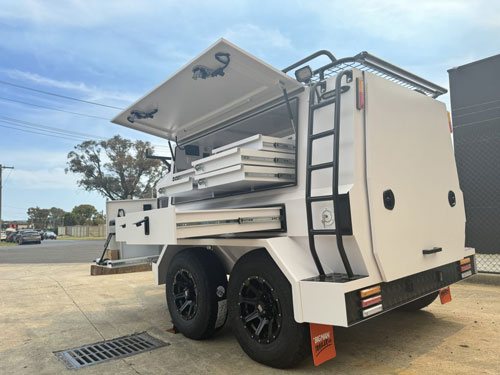


 8x5 Tradie Trailer with Drawer
8x5 Tradie Trailer with Drawer 8x5 Tradie Trailer with Drawer
8x5 Tradie Trailer with Drawer 8x5 Tradie Trailer
8x5 Tradie Trailer 8x5 Tradie Trailer
8x5 Tradie Trailer 8x5 Tradie Trailer
8x5 Tradie Trailer 8x5 Tradie Trailer
8x5 Tradie Trailer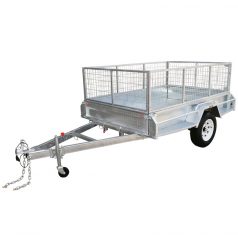 6x4 single axle trailer
6x4 single axle trailer 10x6 ATV Trailer
10x6 ATV Trailer 8x5 Single Axle hydraulic tipper trailer
8x5 Single Axle hydraulic tipper trailer 8x5 tandem premium model
8x5 tandem premium model 8x5 tandem entry level model
8x5 tandem entry level model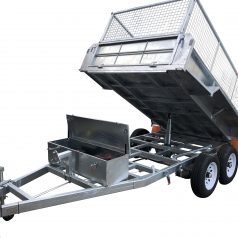 hydraulic tipper trailer
hydraulic tipper trailer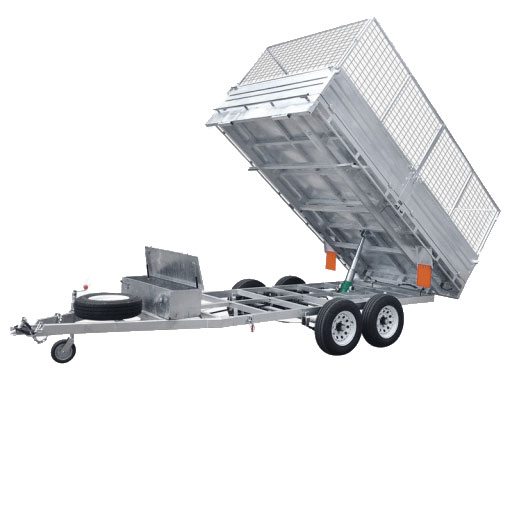 12x7 Flat Top Hydraulic Tipper 3500KG
12x7 Flat Top Hydraulic Tipper 3500KG 12x7 3 way hydraulic tipper flat top trailer
12x7 3 way hydraulic tipper flat top trailer 10x6 Cattle Trailer 2800KG
10x6 Cattle Trailer 2800KG 12x7 Flat Top Cattle Trailer 3500KG
12x7 Flat Top Cattle Trailer 3500KG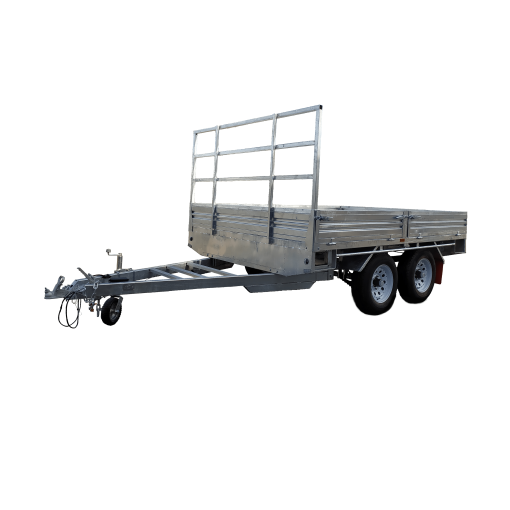 10x7 Flat top trailer 2800KG
10x7 Flat top trailer 2800KG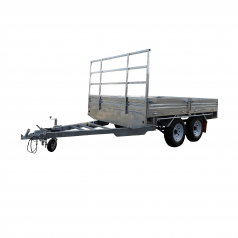 10x7 Flat top trailer 3500KG
10x7 Flat top trailer 3500KG 12x7 Flat top trailer 3500KG
12x7 Flat top trailer 3500KG 8x5 Plant trailer 3000KG
8x5 Plant trailer 3000KG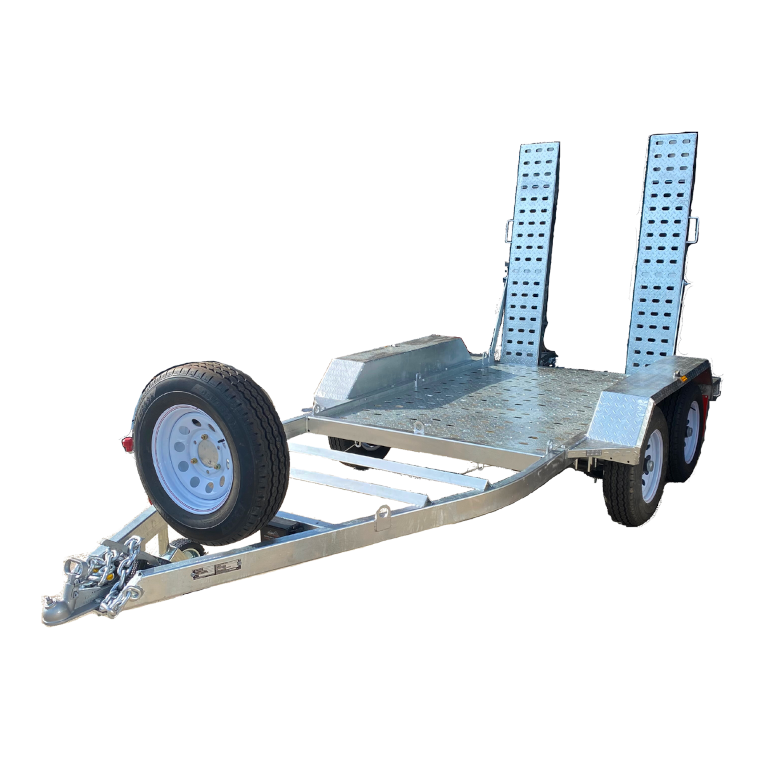 8x5 Heavy Duty Plant trailer 3500KG
8x5 Heavy Duty Plant trailer 3500KG 10x6 Cattle Trailer 2800KG
10x6 Cattle Trailer 2800KG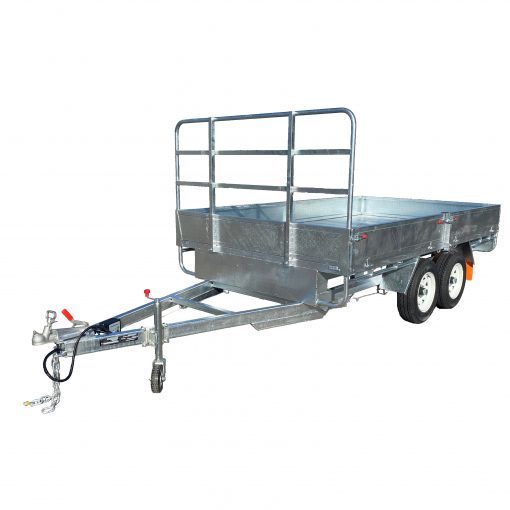 12x7 Flat top trailer 3500KG
12x7 Flat top trailer 3500KG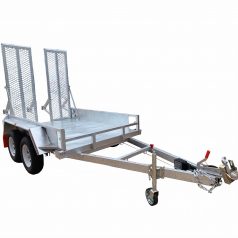 8x5 Plant trailer 3000KG
8x5 Plant trailer 3000KG 16 x 6.6 Car Carrier
16 x 6.6 Car Carrier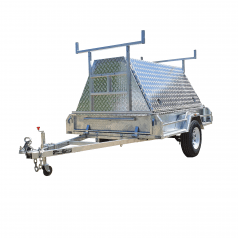 8x5 Single Axle Tradesman Trailer 2 Doors
8x5 Single Axle Tradesman Trailer 2 Doors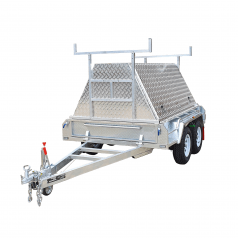 8x5 Tandem Axle Tradesman Trailer 2 Doors
8x5 Tandem Axle Tradesman Trailer 2 Doors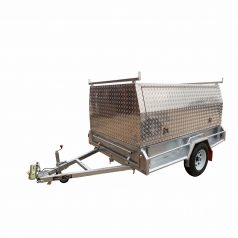 Single Axle Tradesman Trailer 3 Doors
Single Axle Tradesman Trailer 3 Doors Tandem Axle Tradesman Trailer 3 Doors
Tandem Axle Tradesman Trailer 3 Doors Luggage Trailer
Luggage Trailer 10×5 Galvanised Cage Mesh Hydraulic Tipper Trailer | 3.5T ATM
10×5 Galvanised Cage Mesh Hydraulic Tipper Trailer | 3.5T ATM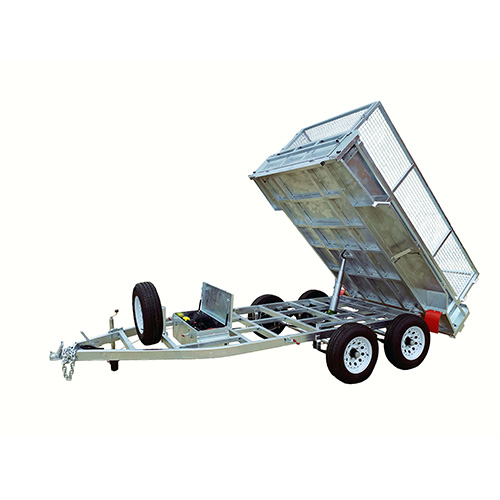 10×6 Galvanised Hydraulic Tipper Trailer | 3.5 Ton ATM
10×6 Galvanised Hydraulic Tipper Trailer | 3.5 Ton ATM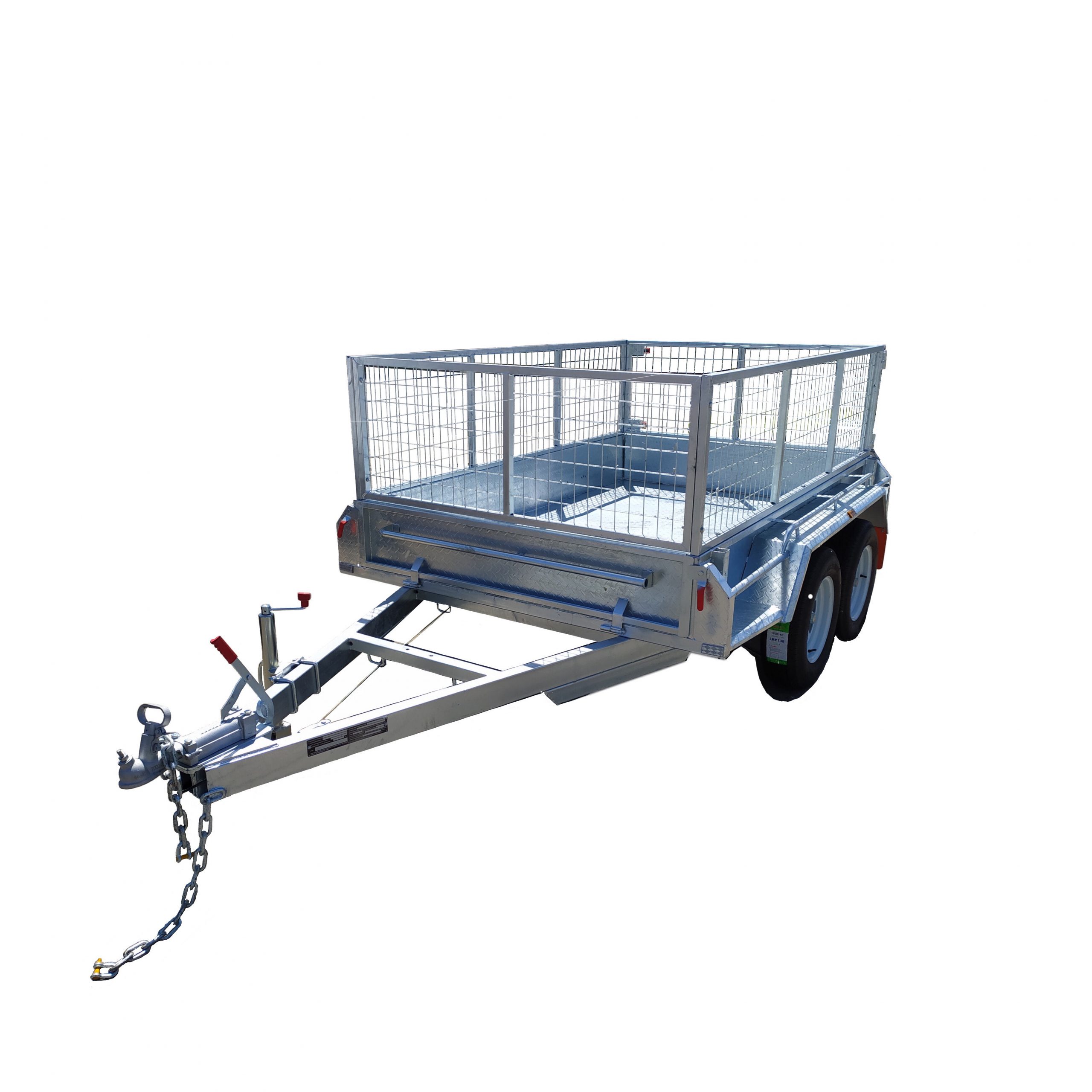 10×5 Dual Axle Galvanised Heavy Duty Cage Trailer Electric Braked ATM 2800KG
10×5 Dual Axle Galvanised Heavy Duty Cage Trailer Electric Braked ATM 2800KG 10×6 Tandem Hot Dip Galvanised Stock Cattle Trailer Crate Cow Livestock Farm 2800ATM
10×6 Tandem Hot Dip Galvanised Stock Cattle Trailer Crate Cow Livestock Farm 2800ATM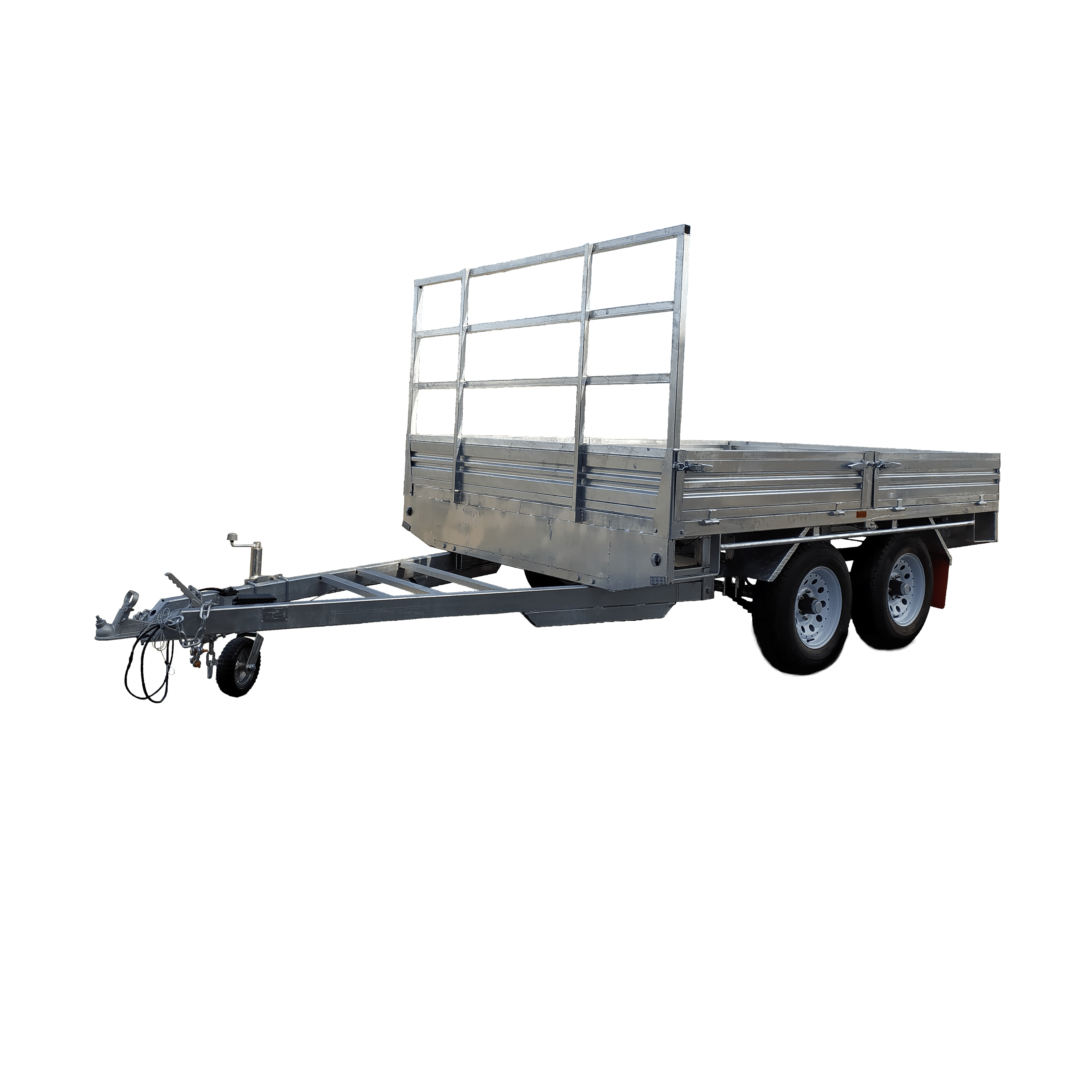 10×7 Heavy Duty Hot Dip Galvanised Flat Tops 2800KG
10×7 Heavy Duty Hot Dip Galvanised Flat Tops 2800KG 12×7 Flat Top Hydraulic Tipper with Cage 3500KG ATM
12×7 Flat Top Hydraulic Tipper with Cage 3500KG ATM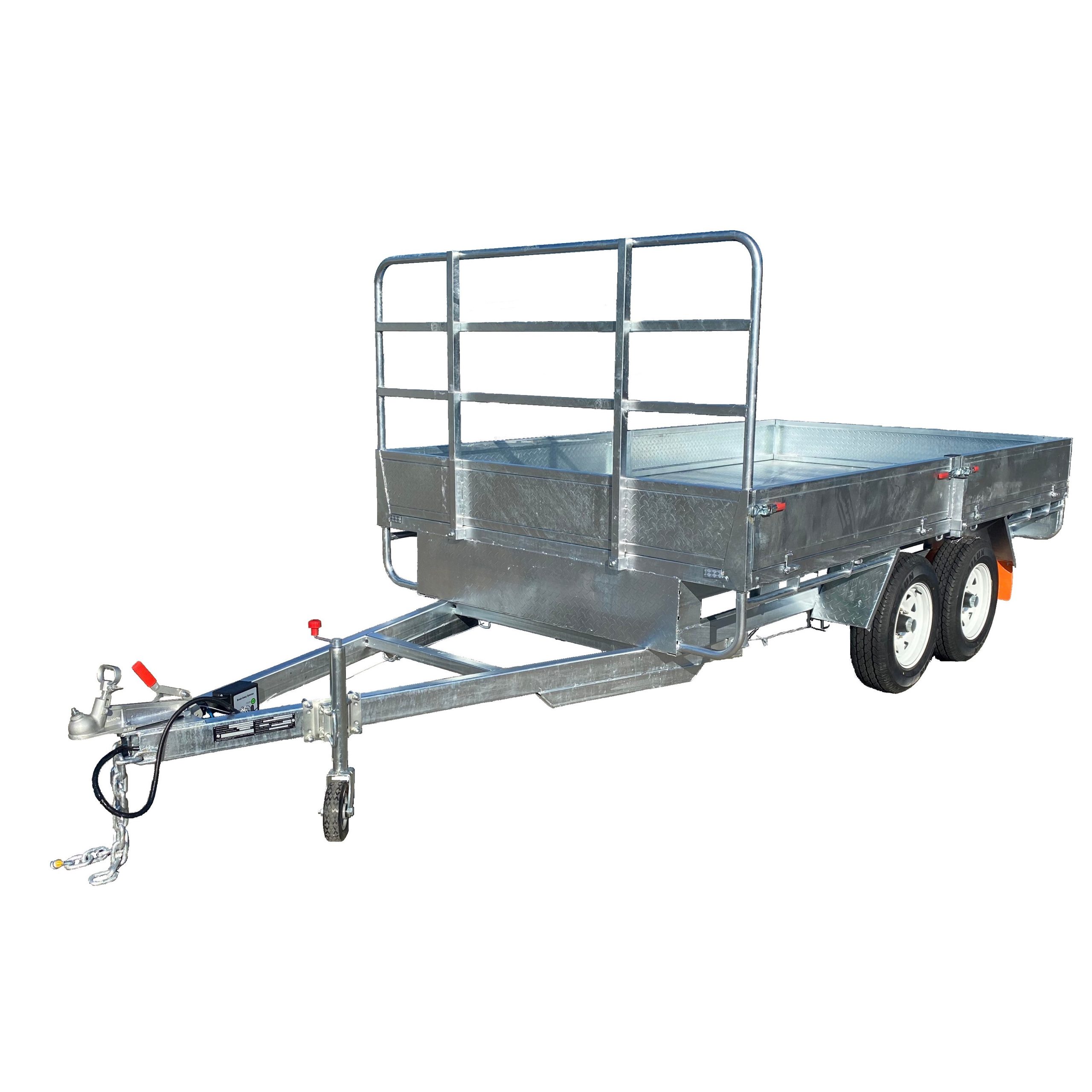 12×7 Heavy Duty Hot Dip Galvanised Flat Tops 3500KG ATM
12×7 Heavy Duty Hot Dip Galvanised Flat Tops 3500KG ATM 8x5 Single Axle Aluminium Tradesman Top Trailer 2 Way Door
8x5 Single Axle Aluminium Tradesman Top Trailer 2 Way Door 8×5 Single Axle Aluminium Tradesman Top Trailer 3 Way Door
8×5 Single Axle Aluminium Tradesman Top Trailer 3 Way Door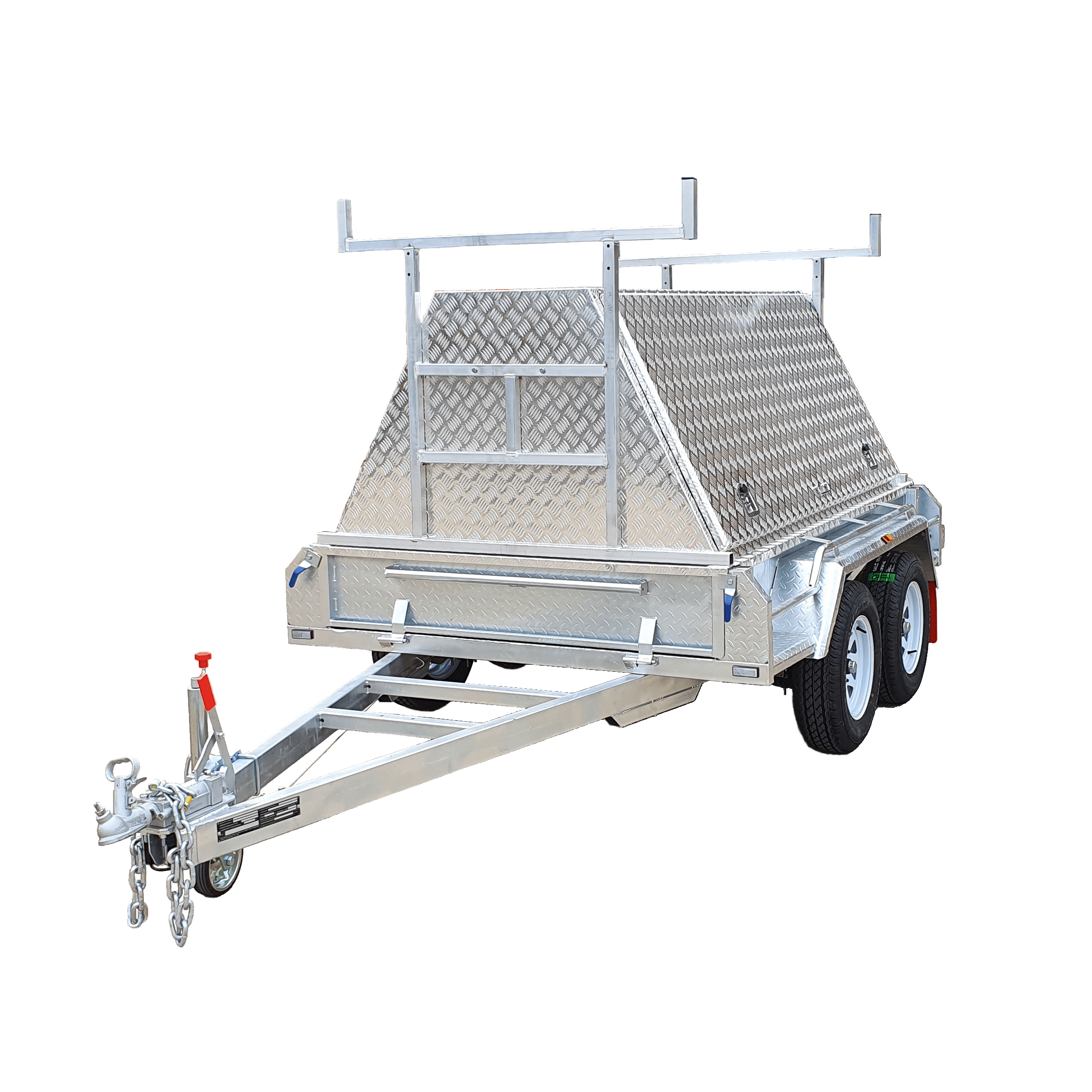 8x5 Tandem Axle Aluminium Tradesman Top Trailer 2 Way Doors
8x5 Tandem Axle Aluminium Tradesman Top Trailer 2 Way Doors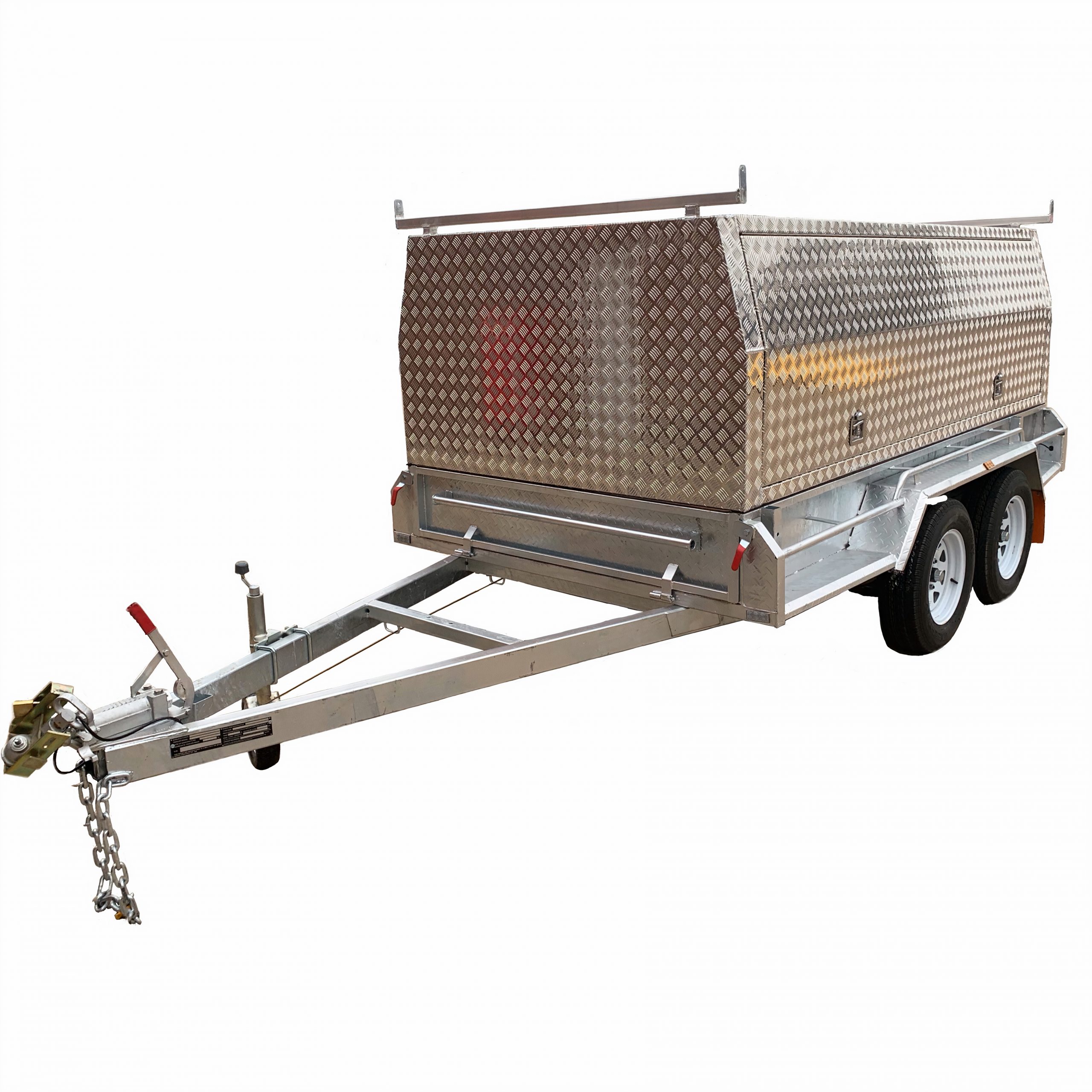 8x5 Tandem Axle Aluminium Tradesman Top Trailer 3 Way Doors
8x5 Tandem Axle Aluminium Tradesman Top Trailer 3 Way Doors Double Horse Float: 2 Horse Straight Load Float
Double Horse Float: 2 Horse Straight Load Float Double Horse Float: 2 Horse Angle Load Float
Double Horse Float: 2 Horse Angle Load Float 3 Horse Float: 3 Horse Angle Load Float
3 Horse Float: 3 Horse Angle Load Float 2 Horse Angle Load Floats with Living Area
2 Horse Angle Load Floats with Living Area Gooseneck Horse Floats
Gooseneck Horse Floats Toolbox 1200x400x400mm
Toolbox 1200x400x400mm Toolbox 1200x500x700mm
Toolbox 1200x500x700mm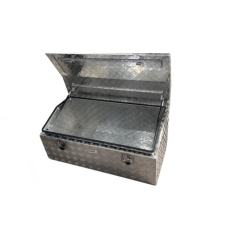 Toolbox 1200x600x500mm
Toolbox 1200x600x500mm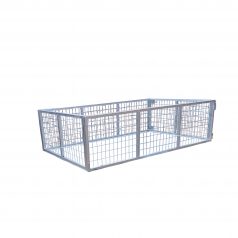 6x4x2 Trailer Cage
6x4x2 Trailer Cage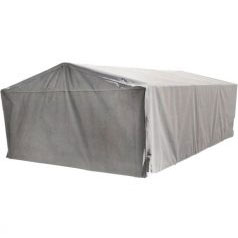 6x4x2 Canvas Cover
6x4x2 Canvas Cover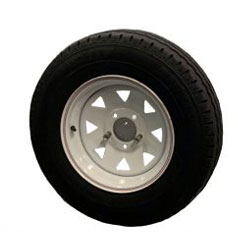 14 inch Light Truck Wheel
14 inch Light Truck Wheel More Trailer Parts Available Here
More Trailer Parts Available Here